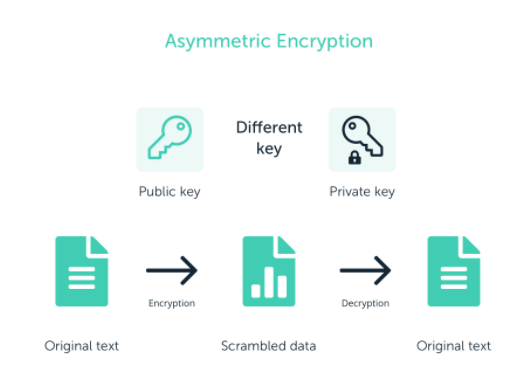Public and private keys explained
Public keys and private keys play a vital role in the world of cryptocurrencies. In fact, there would not be any cryptocurrency if it was not for public and private keys.
So what exactly are these keys and how do they function?
Through private and public keys, people can do cryptocurrency transactions without the need for a third party or central authorities (i.e. banks). Simply put, private and public keys make decentralization possible.
Public and private keys complement each other. Private keys are used to initiate a transaction. Public keys are used to verify transactions.
As their name suggests, private keys need to be kept private (secret), while public keys can be seen by anyone.
Public and private keys work through a set of mathematical functions, known as public-key cryptography (PKC).
What Is PKC?
Public key cryptography is also known as asymmetric encryption or trapdoor functions where information is encrypted and decrypted. The idea behind PKC is that it takes an immeasurable amount of time to solve the mathematical function (which is solved in reverse), but it is so easy to calculate and verify it.
In the same way, PKC is applied to cryptocurrency transactions.

Public Keys
Every person possesses public keys. Public keys are used to encrypt a transaction before it occurs and then to sign the transaction after it is verified. Only after the transaction is signed with a public key, it can be added to the blockchain and let others know that the blockchain has been updated.
Public keys can be shared without being vulnerable. People cannot access your assets through your public keys.
Private Keys
So where does that leave private keys? Private keys are used to digitally sign cryptocurrency transactions.
Private keys are also considered as the “password” of your address. So it is very important that private keys are kept private and not shared with anyone whatsoever. If someone has your private key, he/she can use it to access your crypto wallet.
A private key can be a code with a lot of characters (a very large number) to ensure more safety. Through private keys, public keys can be generated, but not vice-versa. This is due to the PKC (trapdoor functions) that make it practically impossible to do the reverse solution.
How Are Private Keys Stored?
Since they are an essential part of cryptocurrencies and need to be kept private, private keys can be stored in safe crypto wallets.
There are two main types of crypto wallets: hot wallets and cold wallets.
Hot wallets are online platforms or software that store your private keys and allow you to use them for transactions whenever you want.
Cold wallets are USB-like hardware on which private keys are stored offline. Since cold wallets are offline, they are also more secure than hot wallets but not as efficient for frequent traders.
If you want to know more about cryptocurrencies, what they are, and how they function, take a look at this cryptocurrency guide.
Takeaways
- Public key cryptography (PKC) are trapdoor functions where information is encrypted and decrypted to ensure decentralization.
- Public keys are used to encrypt information of a transaction before it occurs and then to sign the transaction after it is verified.
- Private keys are used to digitally sign cryptocurrency transactions and must be kept private.
- Private keys can be stored in hot or cold crypto wallets.